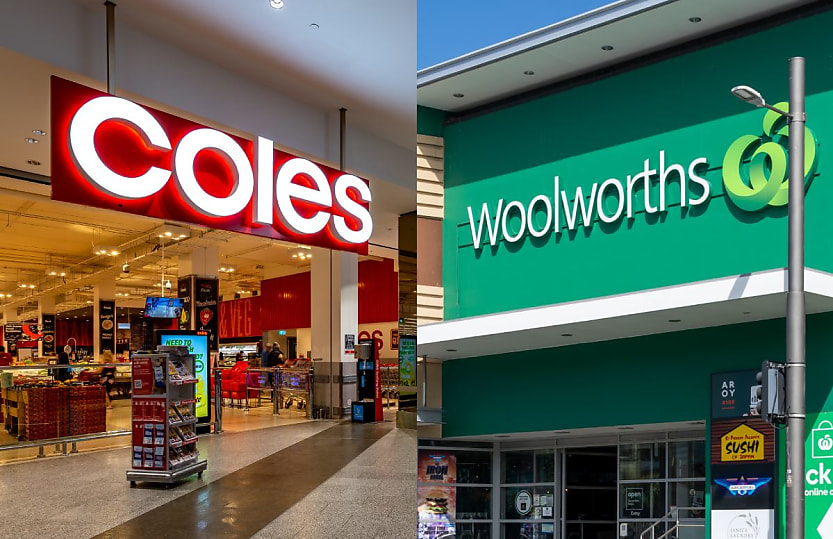IGA parent chief details ‘anti-competitive conduct’ of Woolworths, Coles

“If they can’t buy the store, they try and buy the property,” Metcash CEO accuses supermarket giants of buying up or else drowning out smaller independents.
Grant Ramage, the chief executive of IGA’s parent company, Metcash, used his appearance in the supermarket Senate inquiry to call out the “unchecked growth” of industry leaders Coles and Woolworths.
Ramage welcomed the government’s proposed merger law shake-up but said the government needs to go further to tackle the “multiple examples of anti-competitive conduct.”
When it comes to independent owners, he said “If they [Coles and Woolworths] can’t buy the store, they try and buy the property.”
Together, the giants control approximately 65 per cent of the market, while IGA accounts for around 7 per cent.
He accused Coles and Woolworths of buying independent stores at “significantly inflated prices”, well above what other competitors could afford to pay.
“Their sheer scale gives them the financial capability to do that. It gives them greater sway with developers, landlords, and other parties like state governments,” added Ramage.
He also accused them of ‘land banking,’ where land is purchased primarily to prevent competitors from developing in a strategic area.
The practice, he said, is not illegal. The ACCC does not require the giants to justify their land or property buyouts, meaning they are effectively unaccountable.
“It’s not a question if they are breaking the laws today; our submission is that the laws should be strengthened,” he said. “It’s a decapitation strategy.”
A Woolworths spokesperson told Accounting Times the company’s recent land developments have been “mirroring population growth.”
“Most of our developments in the past five years have been in greenfield areas, including growth corridors, and around a third have been in urban areas that are densifying,” they added.
“Our focus is on our business … not on the business or plans of our competitors.”
A Coles spokesperson said there are “many factors” that go into land purchasing decisions, including “proximity to new communities and growth corridors, or the need for full-service supermarkets within existing markets.”
They added their stores are often near independent retailers, “creating competition which ultimately benefits customers.”
The inquiry was triggered in response to allegations of price gouging and anti-competitive behaviour among the so-called duopoly. Many claim the market concentration of the industry’s largest companies continues to exacerbate cost-of-living pressures.
It has so far resurfaced many similar allegations made in the ACCC’s inquiry report into the sector which found Australia’s food prices had outpaced inflation at a rate well above other OECD nations.
While that inquiry found the sector was “workably competitive,” it did identify a range of potentially anti-competitive elements including high barriers to entry and expansion, a lack of incentives for Coles and Woolworths to compete on prices, and a lack of competition from the independent sector.
The ACCC inquiry also estimated that Australians spent approximately 12 to 14 per cent of their after-tax income on groceries, meaning “increasing prices for these goods have been strongly felt.”
In November of last year, the average Australian household spent $187 per week on groceries, according to research from Finder.
Former ACCC chair Graeme Samuel reportedly advised the government that restrictive leases were making it more difficult for new entrants to secure shopfront sites.
While the giants agreed to no longer enforce restrictive covenants on their lease agreements, Ramage’s allegations of land banking resurface the same kind of behaviour.
Competition has been squarely on the government’s agenda following its merger law shake-up announcement.
The criteria for reviewing merger reforms will be broadened to invite consideration of the cumulative effects of mergers on competition.
So-called “serial acquisitions” – where a business makes several separate acquisitions that have a cumulative anti-competitive effect – are not comprehensively prohibited under current merger law.
Dealing with serial acquisitions has been a “long-standing concern and challenge” of the ACCC, as individual acquisitions often fly under the radar, not triggering merger notifications or amounting, independently, to a “substantial lessening of competition.”
Given the incremental nature of acquisitions, this could prove an effective tool in preventing further consolidation by the supermarket giants.
However, the merger reforms stopped short of granting the competition watchdog the power to force the break-up of existing arrangements.
Outgoing Woolworths chief Brad Banducci and Coles CEO Leah Weckert are scheduled to front the Senate inquiry next Tuesday.
About the author

